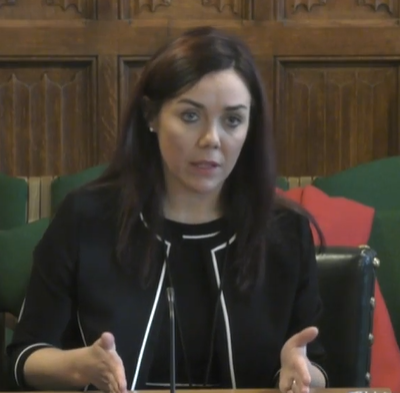Tutoring providers will no longer have to ensure their catch-up reaches at least two-thirds of poorer pupils after the target was ditched, Schools Week can reveal.
Randstad, the for-profit contractor that runs the government’s flagship National Tutoring Programme, said the move would “remove complexities”.
The under-fire scheme is way off meeting promises to provide two million tutoring courses this academic year. Just 302,000 courses began last term, figures released in January showed.
Randstad has now told the NTP’s 56 tutor organisations they are “no longer required to ensure that 65 per cent of their tuition support is provided” to children receiving the pupil premium.
This followed feedback from school leaders and tutor organisations on how to “remove complexities” and “help schools to access” the scheme, the firm said.
The Department for Education had stipulated the 65 per cent pupil premium requirement, which was also a key performance indicator in its contract with Randstad.
A DfE spokesperson insisted the contractual target remains in place, but tutoring organisations have been given some “operational flexibility”.
Either way it leaves the NTP much less likely to hit the target, given this was the key lever Randstad had to ensure more poorer pupils were targeted for support.
Karen Guthrie, Randstad’s senior programme director, told providers today: “Whilst we still recommend that the focus of your tuition support is on those pupils who have been most affected by the disruption caused by the pandemic, we recognise that this will include a significant number of pupils outside of the pupil premium cohort and we encourage you to offer your support to this wider audience.”

Schools Week revealed last week how the programme was yet to share basic data showing how many poorer pupils it had helped, six weeks after MPs demanded it.
Robert Halfon, the education select committee chairman, said there was an “urgent” need for a public dashboard to allow scrutiny of the scheme.
Last year’s tutor scheme – its first year of operation, run by the Education Endowment Foundation – did not have a pupil premium target.
This time last year, just 44 per cent of the 41,100 who had started to receive tuition were eligible for pupil premium.
Natalie Perera, chief executive at the Education Policy Institute, said “if fewer disadvantaged pupils are to benefit from this flagship programme, the government must set out clearly how it intends to support these pupils through alternative interventions”.
“The requirement that two-thirds of pupils in the programme must be from disadvantaged backgrounds was in place for a reason: there is strong research evidence that poorer pupils have been the biggest losers from the pandemic, seeing greater attainment losses than their peers.”
Schools Week first revealed problems under the second year of the NTP in September when leading tuition providers were in a stand-off over contract disputes with Randstad, an international HR firm.
The Observer newspaper reported that the government was “poised” to terminate Randstad’s £32 million contract. The government has refused to comment on this.
Schools now also seem to prefer organising their own provision under a new third pillar of the NTP – where cash goes straight to schools.
DfE insisted today the programme is “on track” to deliver two million courses this year.
The Randstad email to providers, seen by Schools Week, also states it is “consulting” with the DfE on how schools can swap pupils in and out of a block of tuition once it has started.
TES had reported providers insisted running tutoring sessions despite pupils not turning up.
The Randstad email stated they are looking at how “best to support this requirement without implementing a process that is an additional administrative burden for either schools or Tuition Partners.
“We hope to share an update on this with you in the near future.”
















Your thoughts